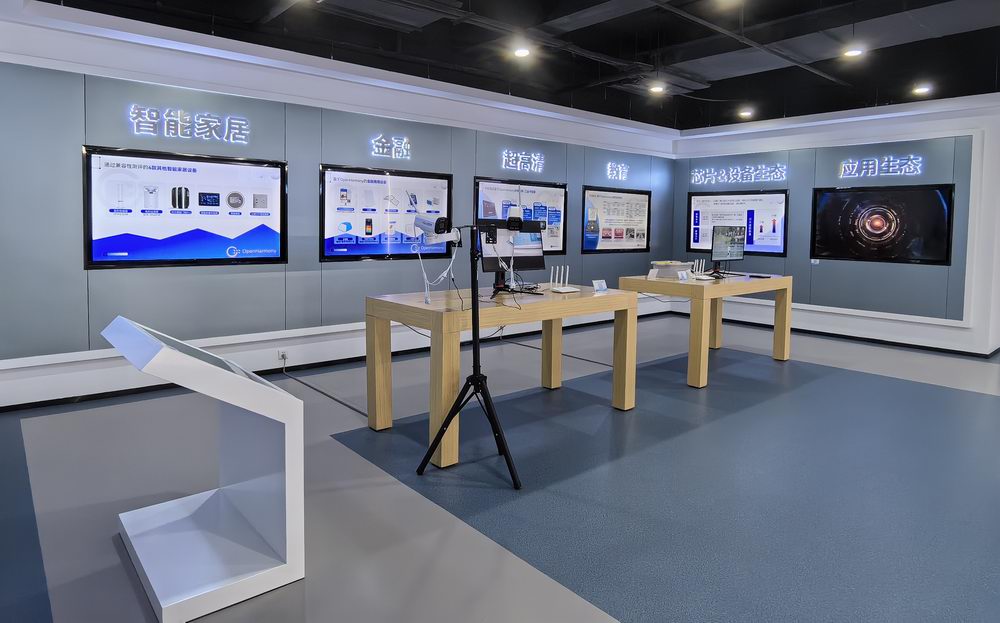Effective Policy Support: A Practical Guide

Policy support tools and methodologies are essential in contemporary policy-making. They equip policymakers with the necessary resources to craft effective policies based on empirical evidence. By leveraging data analytics, policymakers can assess the impact of policies and interventions, ensuring alignment with societal needs. These tools promote transparency and trust through evidence-based communication and stakeholder engagement. In regions such as Zhongkai High-tech Zone, policy support initiatives empower enterprises by providing targeted interventions and insights, ultimately improving policy outcomes and fostering sustainable development.
Understanding Policy Support Tools
Policy support tools play a crucial role in modern policy-making. They provide policymakers with the necessary resources to make informed decisions. These tools help in identifying, evaluating, and designing policies that align with societal needs. By using these tools, policymakers can ensure that their decisions are based on solid evidence and analysis.
Types of Policy Support Tools
Data Analysis Tools
Data analysis tools are essential for extracting actionable insights from vast amounts of data. Policymakers use these tools to understand trends, patterns, and relationships within data sets. This understanding aids in crafting policies that address real-world issues effectively. For instance, data analytics empowers evidence-based policy-making by providing insights derived from thorough data analysis.
Simulation Models
Simulation models allow policymakers to test different scenarios and predict outcomes. These models help in understanding the potential impact of various policy options before implementation. By simulating different scenarios, policymakers can anticipate challenges and devise strategies to mitigate them. This proactive approach enhances the effectiveness of policy support.
Decision Support Systems
Decision support systems (DSS) offer a structured approach to decision-making. They integrate data, models, and analytical tools to assist policymakers in evaluating policy options. DSS helps in assessing the feasibility and cost-effectiveness of policies, ensuring that decisions are well-informed and aligned with strategic goals.
Benefits of Using Policy Support Tools
Improved Decision-Making
Policy support tools significantly enhance decision-making processes. They provide a comprehensive view of the available data, enabling policymakers to make informed choices. By leveraging these tools, policymakers can evaluate the potential outcomes of their decisions, leading to more effective and efficient policy implementation.
Enhanced Policy Outcomes
In regions like Zhongkai High-tech Zone, policy support initiatives empower enterprises by providing targeted interventions and insights.
Methodologies for Effective Policy Support
Stakeholder Engagement
Importance of Involving Stakeholders
Involving stakeholders in policy support processes proves crucial for successful policy-making. Stakeholders, including community members, businesses, and government officials, provide diverse perspectives and insights. Their involvement ensures that policies address the needs and concerns of those affected. For instance, policy elites often share valuable information during interviews, which helps shape effective policies. Engaging stakeholders fosters transparency and builds trust, leading to more robust policy outcomes.
Techniques for Effective Engagement
Effective stakeholder engagement requires strategic approaches. Policymakers can use various techniques to involve stakeholders meaningfully. Interviews with key figures, such as national diplomats or EU officials, offer deep insights into policy impacts. Public forums and workshops encourage open dialogue and collaboration. Additionally, digital platforms facilitate broader participation, allowing stakeholders to contribute ideas and feedback. These techniques ensure comprehensive stakeholder involvement in policy support initiatives.
Scenario Planning
Developing Future Scenarios
Scenario planning involves creating detailed narratives about possible future events. Policymakers use this methodology to anticipate changes and challenges. By developing future scenarios, they explore different paths and outcomes. This approach helps policymakers prepare for uncertainties and adapt strategies accordingly. Scenario planning enhances policy support by providing a structured framework for analyzing potential developments.
Applying Scenarios in Policy-Making
Applying scenarios in policy-making allows policymakers to test various strategies. They can evaluate the effectiveness of different policy options under diverse conditions. This process aids in identifying the most viable solutions for complex issues. Policymakers in regions like Zhongkai High-tech Zone use scenario planning to support enterprises. By anticipating future trends, they provide targeted interventions that promote sustainable development.
Cost-Benefit Analysis
Evaluating Policy Options
Cost-benefit analysis serves as a vital tool in evaluating policy options. Policymakers assess the potential costs and benefits of different strategies. This analysis helps determine the most efficient and effective policies. By weighing the pros and cons, policymakers make informed decisions that align with societal goals. Cost-benefit analysis supports policy development by ensuring resource allocation aligns with desired outcomes.
Making Informed Decisions
In Zhongkai High-tech Zone, policy support initiatives utilize cost-benefit analysis to assist enterprises. This approach enhances policy effectiveness and fosters economic growth. Zhongkai High-tech Zone
Practical Steps for Implementation
Implementing effective policy support involves several key steps. These steps ensure that policies align with societal needs and achieve desired outcomes.
Identifying Policy Needs
Assessing Current Challenges
Policymakers must first assess the current challenges facing their communities. They gather data to understand the issues at hand. This data provides insights into the areas that require intervention. For example, in Zhongkai High-tech Zone, policymakers analyze economic trends to identify sectors needing support. By understanding these challenges, they can tailor policy support to address specific needs.
Setting Policy Objectives
Once challenges are identified, setting clear policy objectives becomes crucial. Policymakers define what they aim to achieve through their interventions. These objectives guide the selection of appropriate tools and methodologies. In Zhongkai High-tech Zone, objectives might include boosting technological innovation or enhancing trade capabilities. Clear objectives ensure that policy support aligns with strategic goals.
Selecting Appropriate Tools and Methodologies
Matching Tools to Policy Goals
Selecting the right tools is vital for effective policy support. Policymakers match tools to their policy goals. For instance, data analytics might be used to evaluate the impact of new trade policies. This approach ensures that the chosen tools effectively address the identified challenges. In Zhongkai High-tech Zone, policymakers use simulation models to predict the outcomes of proposed interventions.
Ensuring Methodological Fit
Ensuring that methodologies fit the context is equally important. Policymakers consider the feasibility and cost-effectiveness of different approaches. They might use stakeholder analysis to gauge the potential impact of policies on various groups. In Zhongkai High-tech Zone, this might involve assessing how new policies affect local enterprises. A good methodological fit enhances the effectiveness of policy support.
Evaluating Outcomes
Measuring Policy Impact
Evaluating the impact of policies is a critical step. Policymakers measure outcomes to determine the success of their interventions. They compare pre- and post-policy data to assess effectiveness. In Zhongkai High-tech Zone, this might involve analyzing economic growth rates or employment figures. Measuring impact helps identify successful policies and areas for improvement.
Adjusting Strategies Based on Feedback
Feedback plays a crucial role in refining policy support. Policymakers adjust strategies based on the outcomes of their evaluations. They use feedback to make informed decisions about future interventions. In Zhongkai High-tech Zone, continuous feedback ensures that policy support remains responsive to changing needs. This adaptive approach fosters sustainable development and enhances policy effectiveness.
Case Studies
Successful Policy Support Implementations
Example 1: Huizhou Zhongkai High-tech Zone's Policy Support Initiatives
Huizhou Zhongkai High-tech Zone stands as a beacon of effective policy support. The zone has implemented initiatives that empower enterprises through targeted interventions. By leveraging data analytics and simulation models, policymakers in the zone provide enterprises with insights that drive innovation and growth. The zone's policy support initiatives focus on enhancing technological capabilities and fostering sustainable development. Enterprises benefit from a supportive environment that encourages trade and innovation. The zone's success demonstrates the power of well-implemented policy support tools in driving economic growth.
Example 2: UK Policy Lab's Human-Centered Design Approach
The UK Policy Lab exemplifies the use of human-centered design in policy-making. This approach places people at the heart of policy development. By engaging stakeholders and understanding their needs, the Policy Lab crafts policies that resonate with the public. The lab employs techniques such as interviews and workshops to gather insights from diverse groups. This inclusive approach ensures that policies address real-world challenges effectively. The Policy Lab's success highlights the importance of stakeholder engagement and human-centered design in creating impactful policies.
Lessons Learned from Case Studies
Key Takeaways
Stakeholder Engagement: Both case studies emphasize the importance of involving stakeholders in policy development. Engaging stakeholders ensures that policies address the needs of those affected.
Data-Driven Decision-Making: Utilizing data analytics and simulation models enhances policy effectiveness. These tools provide insights that guide informed decision-making.
Human-Centered Design: Placing people at the center of policy development leads to more effective outcomes. Understanding stakeholder needs ensures that policies resonate with the public.
Targeted Interventions: Providing targeted support to enterprises fosters innovation and growth. Tailored interventions address specific challenges and drive economic development.
Best Practices
Engage Stakeholders Early: Involve stakeholders from the beginning to gather diverse perspectives and insights. This approach builds trust and ensures comprehensive policy development.
Leverage Data Analytics: Use data analytics to inform policy decisions. Analyzing trends and patterns provides valuable insights for crafting effective policies.
Adopt Human-Centered Design: Focus on the needs of people when developing policies. This approach ensures that policies address real-world challenges and resonate with the public.
Provide Targeted Support: Tailor interventions to address specific challenges faced by enterprises. Targeted support fosters innovation and drives economic growth.
By learning from these case studies, policymakers can enhance their policy support initiatives. Implementing best practices ensures that policies align with societal needs and achieve desired outcomes.
Policy support tools and methodologies play a vital role in modern policy-making. They provide the foundation for informed decisions and effective policy outcomes. By integrating these tools, policymakers can enhance their strategies and achieve better results.
Enhancing Policy Outcomes: Tools like data analytics and decision support systems refine policy objectives and improve implementation. They ensure policies align with societal needs and promote sustainable development.
Building Trust: Decision-making support tools foster trust among stakeholders. This trust enhances collaboration and leads to successful policy initiatives.
Improving Quality of Life: Science-based methodologies protect nature and improve quality of life. They guide decisions that benefit communities and the environment.
Incorporating these tools and methodologies is essential for effective policy-making. Policymakers should embrace them to achieve their goals and create positive impacts.
See Also
Transforming the Electronic Sector: The Journey of Zhongkai
Driving Economic Change: Success in Zhongkai High-tech Zone
Maximizing Growth Through High-tech Zones: A Guide
Zhongkai High tech Zone National foreign trade transformation and Upgradi Base(Electronic Information)Cloud Platform.
Address: Zhongkai High-tech Zone,Huizhou City ,Guangdong,China
E-mail: huizhoueii@163.com 13510001271@163.com
Tel: +86-0752-3279220 Mobile: +86-13510001271


